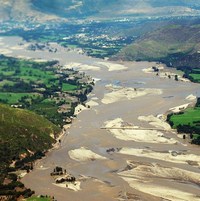
The recent floods in northern India are a stark reminder of the extent of destruction wrought by natural disasters. Year after year we hear of the same hazards seemingly striking in the same places, be it floods in northern India or Pakistan, droughts in the Horn of Africa or typhoons in the Philippines. Yet, far from the media glare, localized and low-intensity recurrent disasters wear down the resilience of communities around the world through displacement and the loss of livelihoods. Unlike in the aftermath of the 2004 Indian Ocean tsunami, the 2005 Pakistan earthquake or the 2010 Haiti earthquake, no […]


